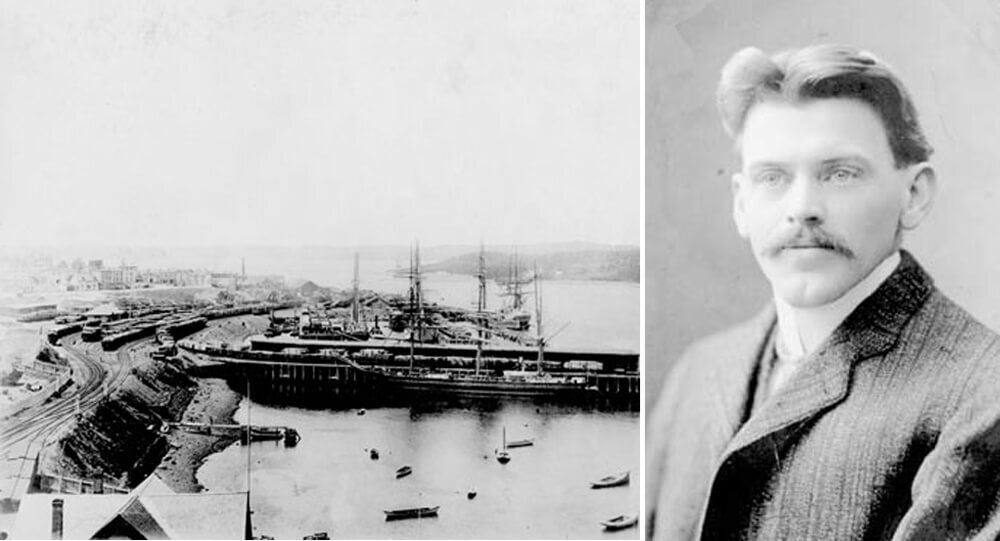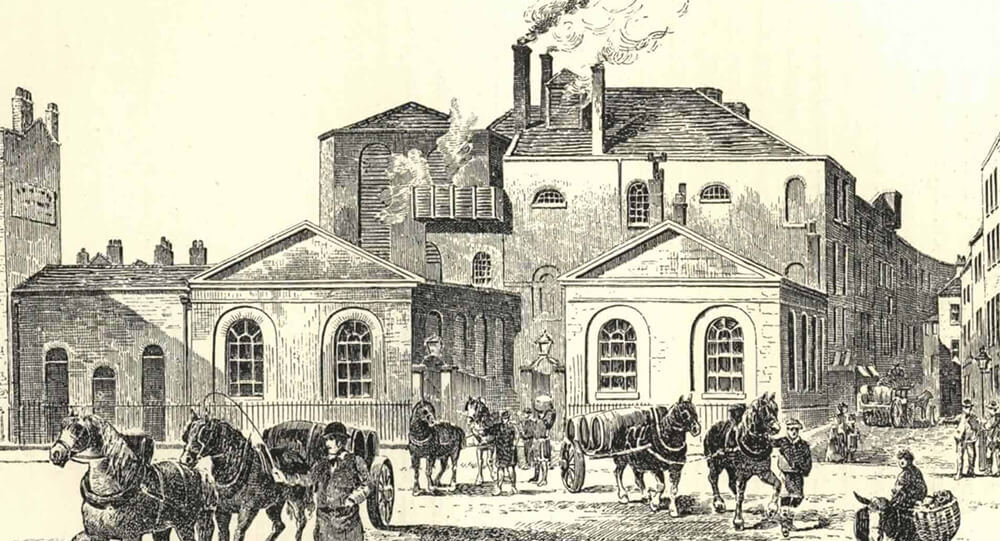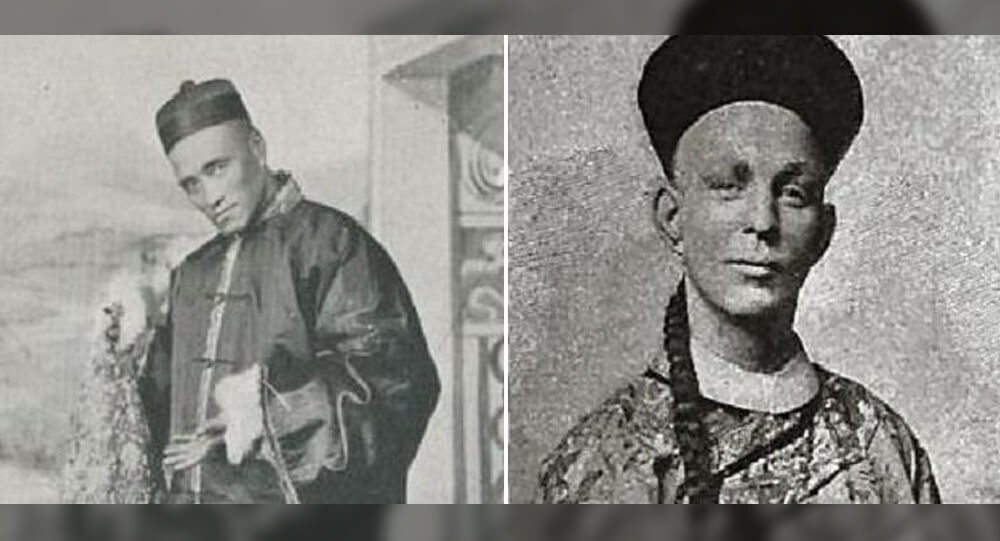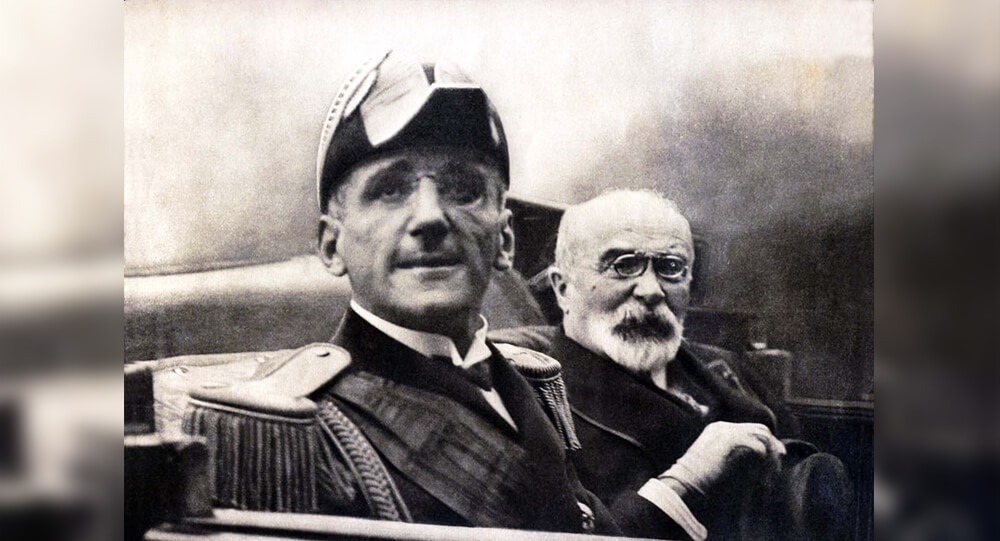
In 1502, the renowned explorer Christopher Columbus, who is credited with discovering the New World, set out on his fourth and final voyage in the hopes of discovering a western route to Asia. This expedition, however, proved to be his most difficult and ultimately brought about an unexpected turn of events. Columbus and his crew encountered difficult conditions and uncertainty while stranded in Jamaica during their journey. In an amazing turn of events, a lunar eclipse was crucial to their survival. This article explores the fascinating tale of how Christopher Columbus ended up stranded in Jamaica and how he cunningly used the impending lunar eclipse to bargain his way out of this precarious circumstance.
Christopher Columbus’s Stranded Voyage to Jamaica
Ah, the story of Christopher Columbus, the traveler who accidentally discovered America and forever altered the course of human history. What about his less well-known exploits, such as the time he got lost in Jamaica? Yes, it appears that even renowned explorers occasionally find themselves in a sticky situation. Come with me as we examine the events leading up to Columbus’s fateful encounter with a lunar eclipse on his fourth and final voyage.
The Journey: Columbus’s Fourth and Final Voyage
Columbus set out on his fourth and final voyage in 1502, full of hope and a little bit of wanderlust. His goals were to find a western route to the Far East, amass wealth, and perhaps discover a few uncharted territories along the way. Columbus set out in search of glory with three ships: the unassuming-sounding but sturdy Santa Mara de la Victoria, the forgotten-sibling-of-the-Nia, La Capitana, and the tried-and-true Santiago. He had no idea what adventures awaited him.
Stranded in Jamaica: Events leading to the Eclipse
Imagine Columbus’ fleet arriving in Jamaica in 1503; they are exhausted and in need of rest. But alas, luck was not on the side of our brave explorer. The crew needed time to make repairs because the ships were damaged. Days became weeks, and then weeks became months. The crew soon understood they were stranded, and their worry quickly turned to desperation.
Being the resourceful man that he was, Columbus decided to engage in negotiation. By promising that their god would reward their generosity, he persuaded the locals to provide the necessities for his crew. Days again turned into weeks, and food became scarce. As they anxiously awaited word that they would be rescued from this beached purgatory, the crew and the locals’ patience grew thin.
The Superstitious Natives: Response to the Stranded Europeans
Columbus and his crew encountered a mixture of superstition and curiosity as they interacted with Jamaica’s native population. The natives initially viewed them with suspicion because they were unfamiliar with the presence of Europeans. While some perceived them as divine visitors, others thought they were cursed creatures who were to blame for their misfortune.
Ever the diplomat, Columbus used his charm and wit to win over the locals. Through his efforts, he won their confidence and eventually persuaded them to exchange their priceless supplies for insignificant trinkets. The locals were superstitious, but they were also shrewd negotiators, despite their superstition.
Columbus and his crew had no idea that a celestial event would drastically alter their situation. A lunar eclipse illuminated the Jamaican sky on the evening of February 29, 1504, giving the night a sinister glow. The superstitious natives rushed to give Columbus and his crew an abundance of provisions, thinking it was a sign from their gods, in an effort to win their favor.
Columbus and his crew said goodbye to their temporary haven in Jamaica and set sail once more into the unknown, their bellies full and spirits high. The stranded voyage had come to an end, leaving behind a tale of diplomatic skill, resourcefulness, and a dash of lunar good fortune.
But keep in mind that even the most accomplished explorers occasionally become stranded and reliant on the generosity of strangers and the whims of nature. Therefore, the next time you find yourself in a difficult circumstance, just remember Christopher Columbus and his lunar eclipse journey. Who knows, maybe everything will come together for you as well.
Columbus’s Ingenious Plan: Predicting the Lunar Eclipse
When Christopher Columbus and his crew got stuck in Jamaica in 1504, they had a difficult task ahead of them: persuading the locals to keep bringing them food and supplies. Columbus, ever the resourceful traveler, devised a brilliant scheme to astound and impress the locals: he predicted a lunar eclipse.
Columbus had access to almanacs that detailed celestial events and was well-versed in astronomy. He was aware that on February 29, 1504, there would be a lunar eclipse. With this information in hand, he approached the Cacique (chief) in the area and asked to meet with his council.
The Agreement with the Natives: Columbus’s Negotiation Tactics
Columbus took advantage of the upcoming lunar eclipse in his meeting with the tribal council. In retaliation for their lack of cooperation, he informed the council that he had the authority to cause the moon to vanish. He forewarned them that the moon would vanish from the sky on the appointed night if they did not furnish him and his crew with provisions.
Naturally, the locals were dubious at first, but as the predicted date approached, they grew more concerned. Columbus made a show of praying before announcing that he would spare the moon from disappearing as a sign of mercy after sensing their fear and desperation. However, he made it clear that this act of goodwill would only continue if the natives continued to provide the necessary supplies.
The Miracle of the Eclipse: Impact and Resolution
The locals gave the crew an abundance of food and supplies as the night of the lunar eclipse drew near, curious to see if Columbus could truly control the celestial forces. Knowing he had to keep his word, Columbus checked his almanac and correctly predicted when the eclipse would occur.
Columbus acted as though he were in deep prayer that fateful night as the moon started to eclipse, and he dramatically begged the heavens for help. The moon then started to reappear as if by magic. The natives were in awe and fear as they watched this extraordinary event. They instantly knelt at Columbus’ feet, pleading for his pardon and promising to give the crew whatever they required.
The miraculous lunar eclipse not only saved Columbus and his crew from starvation but also secured their safety and well-being during their time in Jamaica.

Vince Coleman, a railway dispatcher, sacrificed his own life
Vince Coleman, a railway dispatcher, sacrificed his life in order to warn an incoming train of an imminent explosion. His telegraph said “Hold up the train. Ammunition ship afire in harbor making for Pier 6 and will explode. Guess this will be my last message. Good-bye, boys.” He saved 300 lives.

Irena Sendler: woman who rescued Jews during holocaust
Irene Sendler was the Zegota resistance group's head of the children's department. She risked her life to smuggle children out of the Warsaw ghetto, place them with Polish families or orphanages, give each child a new identity, and keep records so that they could be returned to their families. In 1943, the Gestapo arrested and sentenced her to death, but she was rescued by Zegota.

Archaeologists Uncover 2,000-Year-Old Amazonian Cities Using Lidar Technology
Deep in the Ecuadorian Amazon, archaeologists have uncovered an ancient network of urban settlements once inhabited by the Upano people about 2,000 years ago. Using cutting-edge lidar technology, these discoveries reveal a highly organized society featuring sophisticated agricultural systems, drainage canals, and extensive road networks. This transformative find challenges long-held assumptions about ancient Amazonian societies and sheds light on a complex civilization thriving in one of the world’s most biodiverse regions.

10 world’s most destructive and dangerous volcanic eruptions in history
Volcanic eruptions can devastate cities, change the world's atmosphere, and devastate economic systems. They can create molten lava rivers, mudslides, suffocating ash, and poisonous gases that cause chaos around the world for years. A volcanic explosion's effects can be massive, from its size to its death toll to its economic cost. Here is ten world’s most destructive and dangerous volcanic eruptions in history.

The 1814 London beer flood
In 1814, there was a beer flood in London when a tank containing more than 300,000 gallons ruptured in which 8 people drowned.

The Horrific story of Ariel Castro and the Cleveland abduction
Cleveland abduction victims Gina DeJesus, Michelle Knight, and Amanda Berry were forced to live in Ariel Castro's house of horrors for 10 years. He raped and beat them until they escaped in 2013.

Saudi Arabia camel carvings dated to prehistoric era
Archaeologists were shocked to discover that a series of camels carved into desert rock faces in north-western Saudi Arabia are actually prehistoric, dating from 7,000-8,000 years ago - before either the Pyramids of Giza or Stonehenge were built.

The Day an Israeli F-15 Landed with One Wing: Zivi Nedivi’s Unbelievable Mid-Air Survival
Discover the astonishing true story of Israeli pilot Zivi Nedivi, who safely landed an F-15 after a mid-air collision tore off its entire right wing. Learn how skill, quick thinking, and the F-15’s unique design turned a disaster into a legendary feat in aviation history

The Bizarre (And Magical) Duel Between Chung Ling Soo And Ching Ling Foo
Ching Ling Foo and Chung Ling Soo were two magicians from the early 20th century who were bitter rivals. While Ching Ling Foo was genuinely Chinese, Chung Ling Soo was actually a New Yorker named William Robinson.

3 men lived on top of a billboard in tents for almost 9 months
From 1982-1983, three men in Allentown PA competed in a radio contest in which they lived on top of a billboard in tents. Whoever stayed up longest would win a house. Due to economic pressure from the recession, none of the contestants wanted to give up, so the contest lasted almost 9 months.

The story of Bill Haast, who lived to be 100 despite his extensive snake venom injections
Bill Haast immunized himself by injecting snake venom into his blood for several years. He holds the Guinness World Record for surviving the most lethal snake bites, having been bitten over 172 times. Bill became known as "Snake Man" around the world and lived for over 100 years.

The incredible story of a plane that lost its roof in mid-flight and the light signal that saved 94 lives.
On April 28, 1988, Aloha Airlines flight 243 was on the way to Honolulu from Hilo when a huge portion of the upper part of the fuselage blew off the airplane.

The incredible story of Julia "Butterfly" Hill and her legacy
American environmental activist Julia “Butterfly” Hill lived in a 1500-year-old California Redwood tree for 738 days to prevent it from being cut down by the Pacific Lumber Company. The Simpson’s episode “Lisa the Tree Hugger” was inspired by Hill’s story.

8 Interesting Facts About The Unsinkable Ship, TITANIC
If you ask your friends what's the most famous ship in history the answer in most cases will be the same, of course the legendary Titanic. Its history is full of mysteries, at first it was a source of hope and national pride as well as proof of the triumphs of mankind but it soon became a source of nostalgia and pain, the extent of which cannot be described in words.

What exactly was the US's 'Ghost Army' during WWII?
During WW2, there was a special unit of men dubbed the ‘Ghost Army’. The unit was made of artists, creative and engineers and their job was to create deception about the enemy. From inflatable tanks to phony convoys to scripted conversations in bars intended to spread disinformation, they used all possible tricks to fool the enemy.

How Cleveland's Balloonfest in 1986 Turned Into a Public Tragedy
In Cleveland, Ohio, United Way broke the world record by deflating nearly 1.5 million balloons as part of a publicity stunt to raise money. The balloon obstructed a US Coast Guard search for two boaters who were subsequently discovered to have drowned, blocked airport runways, and blocked land and waterways.

how Ferris wheel invented
In 1891, Chicago challenged engineers to create a structure to surpass the Eiffel Tower for the World's Columbian Exposition. George Washington Gale Ferris jr. responded with the original Ferris Wheel, a giant rotating structure elevating visitors above the city. This invention became an iconic attraction at the fair.

Remembering the 1945 Empire State Building Disaster: When a Plane Met Skyscraper
An airplane crashed into the Empire State Building in 1945. Among other damage, plane parts severed the cables of an elevator and the woman inside fell over 70 stories. She lived and holds the world record for the longest survived elevator fall.

Blanche Monnier: Imprisoned For 25 Years For Falling in Love
Blanche Monnier, she was a French woman noted for her beauty, she wished to marry an old lawyer that her mother disapproved of, so she locked her in a small dark room in her attic for 25 years.

Marion Stokes recorded 30 years of television
Marion Stokes, a Philadelphia woman began taping whatever was on television in 1979 and didn’t stop until her death in 2012. The 71,000 VHS and Betamax tapes she made are the most complete collection preserving this era of TV. They are being digitized by the Internet Archive.

The History Behind the “No One Dies Alone” Program
In 1986, while doing a night shift at the hospital, Sandra Clarke, a registered nurse, was asked by an elderly patient to stay. She promised to be back after checking on her other patients, but by the time she returned, the gentleman had passed away. Clarke became one of the key figures in launching No One Dies Alone, a program that allows volunteers to sit with terminal patients who have no one else.

The World’s First Seismograph: How Ancient China Detected Earthquakes 1,800 Years Ago
Over 1,800 years ago, long before modern technology, the ancient Chinese astronomer and inventor Zhang Heng created the world’s first seismograph in 132 AD. This ingenious bronze device could detect distant earthquakes by releasing small balls from dragons’ mouths into toads’ mouths—each indicating a different compass direction. Its historic detection of an earthquake 400 miles away astonished the imperial court and transformed the way societies understood and responded to seismic events.

Keith Sapsford: The Story of 14-Year-Old Stowaway
The final image of 14-year-old Australian Keith Sapsford, who aspired to travel the world. In February 1970, he sneaked into the wheel-well of a plane flying from Sydney to Tokyo. It opened mid-air & fell out. When a photographer was testing a new lens, he captured this moment on film and was surprised when it developed.

The Assassination Of King Alexander
The assassination of King Alexander of Yugoslavia marked a pivotal moment in the country's history. This article delves into the rise and reign of King Alexander, exploring his early life and ascension to the throne. It also examines the political and social climate in interwar Yugoslavia, setting the stage for the tensions and challenges that ultimately culminated in his tragic assassination. By understanding the context in which this event unfolded, we can better grasp the significance and impact it had on the nation and its future.

New London School Explosion, Deadliest school disaster which killed almost 300 children and teachers
In 1937, a gas leak in the basement at the local school in New London, Texas caused a massive explosion which killed almost 300 children and teachers, the deadliest school disaster in US history. Adolf Hitler even sent his condolences by telegram.


























